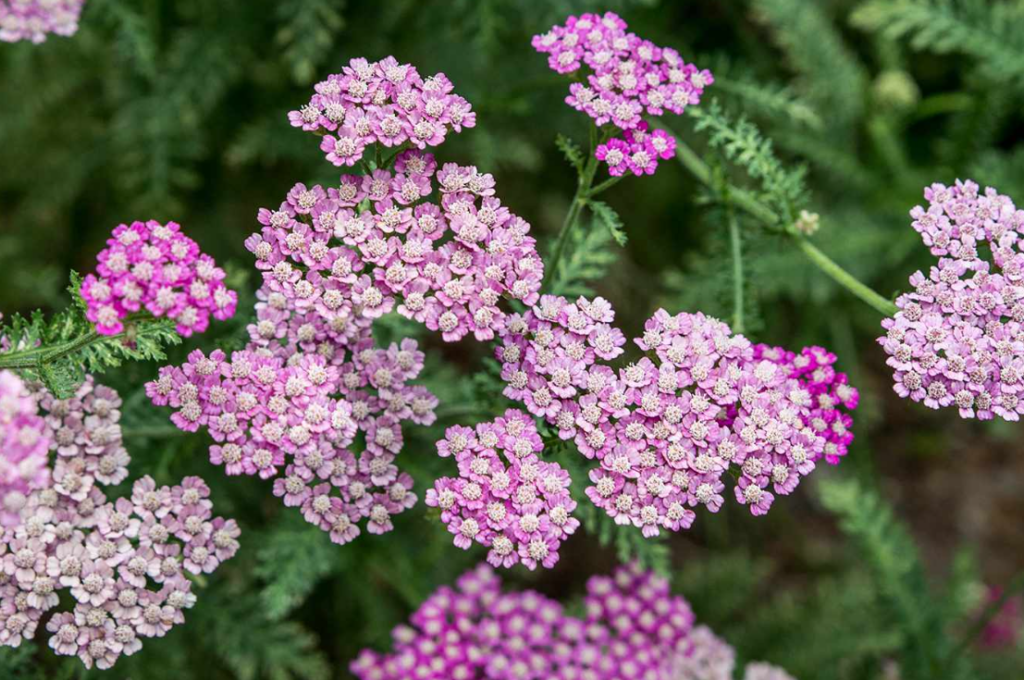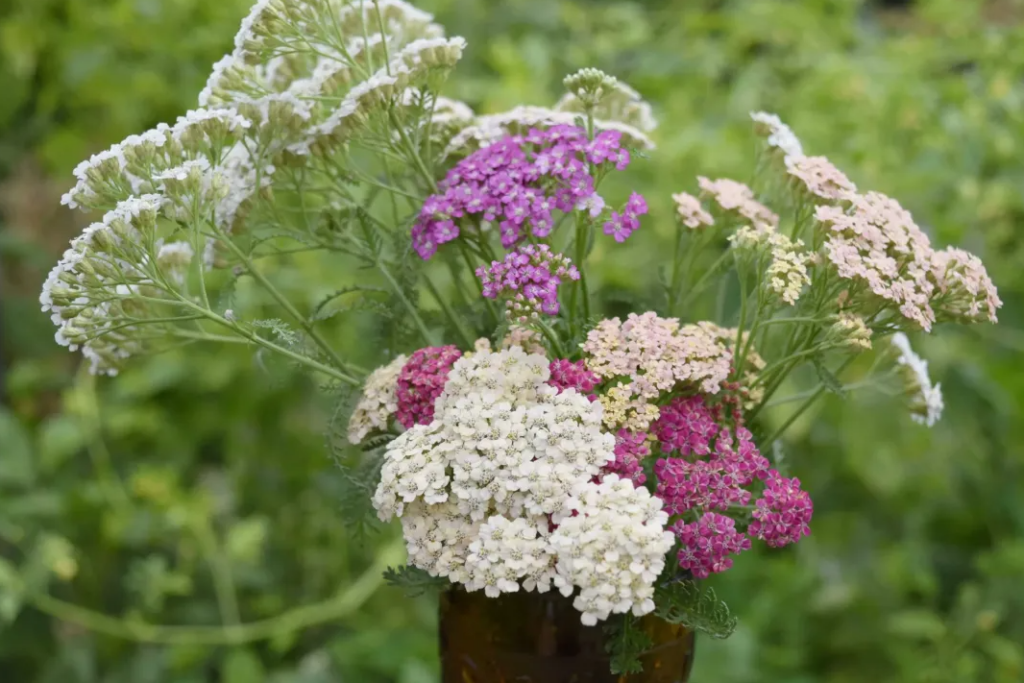Yarrow (Achillea millefolium), a perennial herb celebrated for centuries, remains a cornerstone in traditional medicine. Known for its delicate, feathery leaves and clusters of white or pink flowers, this plant is much more than a pretty wildflower. Yarrow’s medicinal properties have been utilized since ancient times for wound healing, fever reduction, and more. Today, its versatility and natural compounds make it an indispensable part of holistic health practices. Let’s dive into 15 incredible benefits of yarrow and discover how to incorporate this timeless herb into your daily routine.

15 Remarkable Health Benefits of Yarrow
1. Speeds Wound Healing
Yarrow’s anti-inflammatory and astringent properties make it a natural wound healer. When applied topically, it helps stop bleeding, accelerates clotting, and reduces infection risk, making it a go-to remedy for cuts and bruises.
2. Aids Digestion
Yarrow stimulates bile production and relieves bloating, indigestion, and cramps. Its soothing properties improve gut health and ease digestive discomfort.
3. Eases Menstrual Cramps
Long used by women to manage menstrual pain, yarrow’s antispasmodic effects help relax uterine muscles, reduce cramping, and regulate heavy menstrual flow.
4. Reduces Fever
A traditional remedy for colds and flu, yarrow induces sweating to break fevers, helping the body eliminate toxins and regulate temperature.
5. Anti-Inflammatory Effects
Packed with flavonoids and tannins, yarrow is a powerful anti-inflammatory agent. It helps alleviate joint pain, arthritis, and skin irritations while calming internal inflammation.
6. Lowers Blood Pressure
Yarrow’s vasodilating properties relax blood vessels, improving circulation and reducing high blood pressure. It’s a natural ally for cardiovascular health.
7. Enhances Circulation
By reducing blood viscosity and improving vessel health, yarrow supports better circulation, ensuring oxygen and nutrients reach every part of the body efficiently.
8. Provides Antiseptic Protection
Rich in antibacterial compounds, yarrow prevents infection in minor wounds, burns, and skin irritations when applied topically.
9. Supports Respiratory Health
Yarrow’s expectorant properties help clear mucus from the lungs, making it effective for colds, bronchitis, and mild asthma relief.
10. Detoxifies the Body
As a natural diuretic and diaphoretic, yarrow encourages the body to eliminate toxins through sweat and urine, promoting detoxification.
11. Relieves Anxiety and Stress
Yarrow has calming effects on the nervous system, making it a soothing choice for stress, anxiety, and mild tension headaches. A warm cup of yarrow tea can provide a sense of tranquility.
12. Boosts Immunity
Loaded with antioxidants, yarrow strengthens the immune system, helping the body fend off illnesses and infections, especially during cold and flu season.
13. Improves Skin Health
Yarrow’s astringent and anti-inflammatory properties make it an effective remedy for acne, scars, and skin redness. It tones the skin, tightens pores, and promotes a smoother complexion.
14. Manages Varicose Veins
By enhancing circulation and reducing inflammation, yarrow can alleviate pain and swelling caused by varicose veins, improving their appearance over time.
15. Supports Weight Management
Yarrow promotes digestion, boosts metabolism, and helps the body eliminate excess fluids, making it a valuable addition to weight management plans.
How to Use Yarrow
Yarrow is versatile and can be used in various forms depending on your needs:
- Tea: Steep dried yarrow flowers in hot water for 10–15 minutes. Drink up to three cups daily for digestive, menstrual, or immune support.
- Tincture: Take 10–15 drops under the tongue or dilute in water for a concentrated remedy, particularly effective for cramps or digestive discomfort.
- Poultice: Crush fresh leaves and flowers to make a poultice for wounds or inflamed areas.
- Salve: Use yarrow-infused oils or salves on skin conditions like eczema, rashes, or varicose veins.
- Essential Oil: Add a few drops to baths or dilute with a carrier oil for massages.
Safety and Precautions

While yarrow is generally safe, some individuals may experience allergic reactions, particularly those sensitive to plants in the Asteraceae family (such as daisies or chrysanthemums). Pregnant and breastfeeding women should avoid yarrow, as it can stimulate uterine contractions. Always consult a healthcare provider before starting any herbal regimen, especially if you’re taking medications or have existing health conditions.
Conclusion

Yarrow is more than just an herb—it’s a timeless healer with a wealth of benefits for both internal and external health. From aiding digestion and relieving menstrual cramps to boosting immunity and enhancing skin health, yarrow’s applications are vast and varied. By incorporating this ancient remedy into your wellness routine, you can tap into its remarkable potential for a healthier, more balanced life.
Inspired by this? Share the gift of yarrow with your friends and family!





